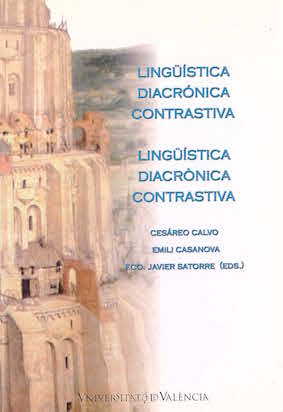¿Es el ladino judeoespañol calco?
DOI:
https://doi.org/10.7203/qfilologia.9.5119Paraules clau:
Ladino, judesmo, sefardí Resum
Resum
En aquest treball es pretén demostrar que no és veritable la proposta de V.H. Sephiha referent a l'afirmació que el ladino és el jueuespañol calc, enfront de la llengua sefardí vernacla «no-calc» per la qual s'adopta la denominació judesmo. Per desgràcia, aquesta diferenciació entre judesmo i ladino ha tingut una fortuna no merescuda, no només entre els estudiosos dels assumptes sefardites, sinó fins i tot en les definicions del diccionari de la RAE. Aquest article contribueix a buidar dubtes i a demostrar que és falsa i errònia la teoria que hi ha dues llengües sefardites diferents.
 Descàrregues
Descàrregues
Descàrregues
Publicades
Com citar
-
Resum443
-
PDF (Español)254
Número
Secció
Llicència
 Este obra está bajo una licencia de Creative Commons Reconocimiento-NoComercial-SinObraDerivada 4.0 Internacional.
Este obra está bajo una licencia de Creative Commons Reconocimiento-NoComercial-SinObraDerivada 4.0 Internacional.
Tots els documents inclosos a OJS són d'accés lliure i propietat dels seus autors i/o institucions editores, i per tant, qualsevol acte de reproducció, comercialització, comunicació pública o transformació total o parcial necessita el consentiment exprés i escrit d'aquests.
Authors who publish with this journal agree to the following terms:
- Authors retain copyright and grant the journal right of first publication with the work simultaneously licensed under a Creative Commons Attribution License that allows others to share the work with an acknowledgement of the work's authorship and initial publication in this journal.
- Authors are able to enter into separate, additional contractual arrangements for the non-exclusive distribution of the journal's published version of the work (e.g., post it to an institutional repository or publish it in a book), with an acknowledgement of its initial publication in this journal.
- Authors are permitted and encouraged to post their work online (e.g., in institutional repositories or on their website) prior to and during the submission process, as it can lead to productive exchanges, as well as earlier and greater citation of published work (See The Effect of Open Access).




